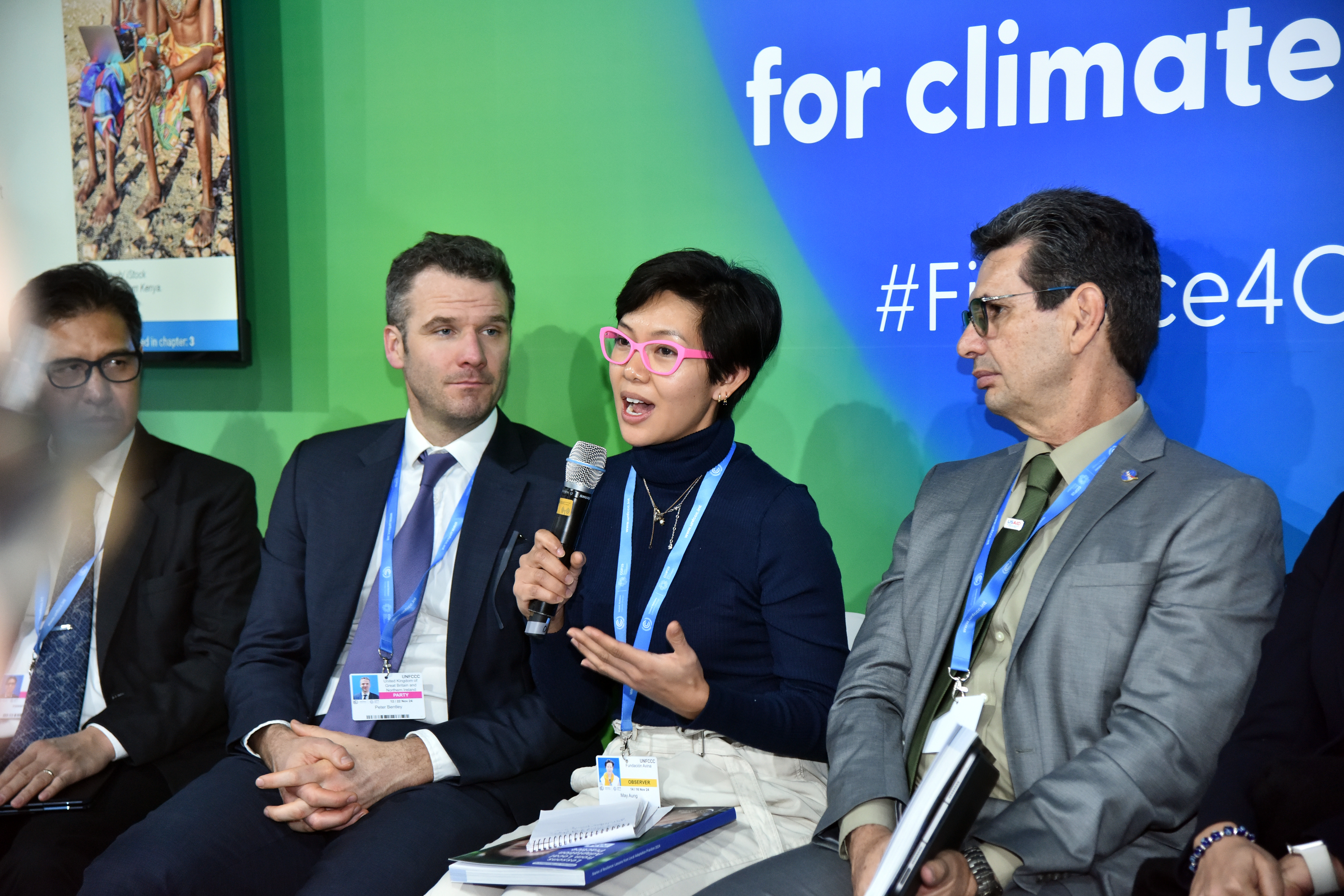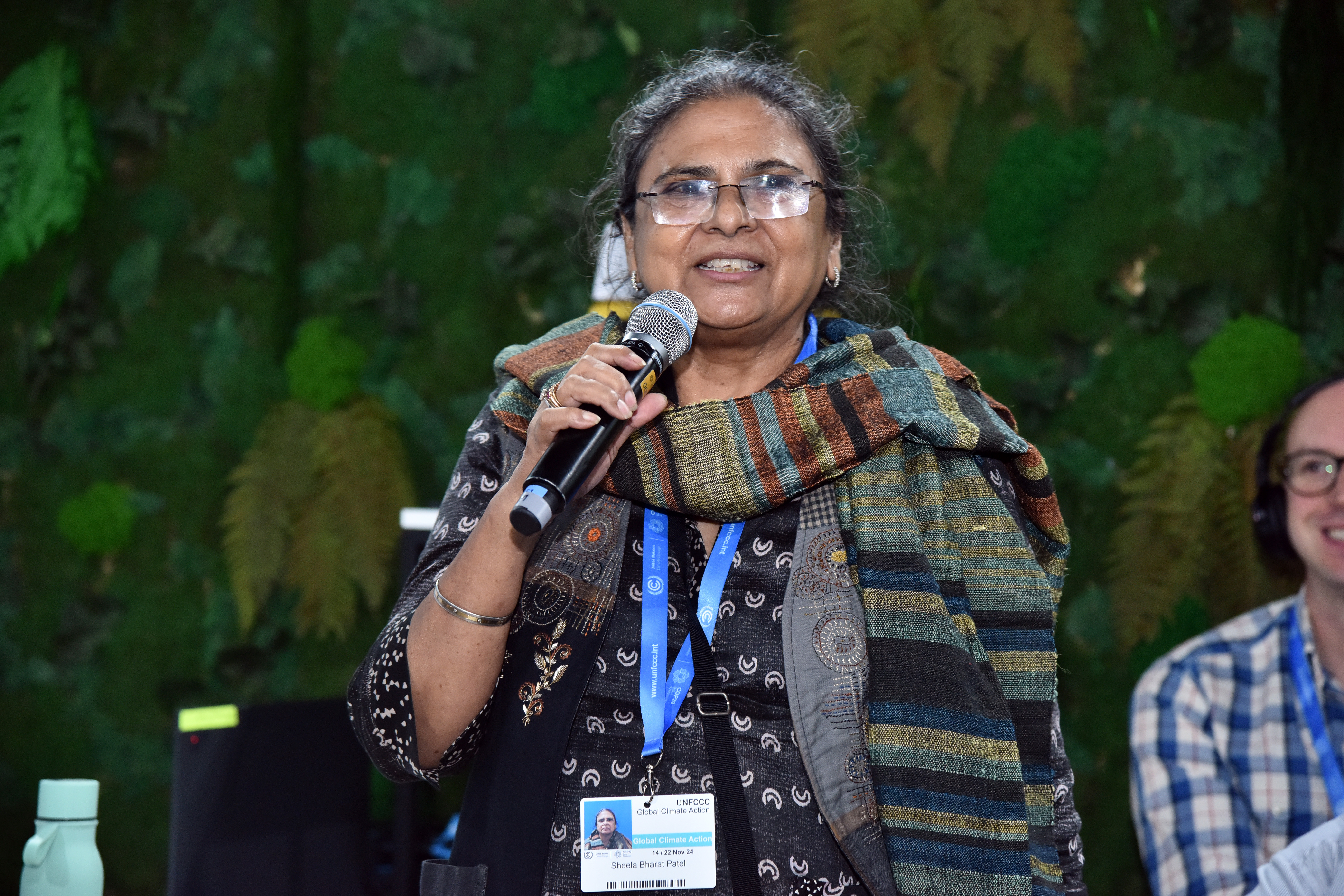Baku, Azerbaijan, 14 November 2024 — At the 29th UN Climate Conference (COP29) in Baku, the Global Center on Adaptation (GCA) released the 2024 edition of the Stories of Resilience: Lessons from Local Adaptation Practice series presenting powerful insights from communities across the globe that are leading the way in locally led adaptation (LLA) practices. The book underscores the urgent need for rapid reform in how climate finance is delivered to vulnerable communities, in the power dynamics between climate finance providers and recipients, and in how success in adaptation is measured.
Global climate finance providers and national governments describe their efforts to improve delivery of finance to climate vulnerable communities in this year’s edition, following a strong message from communities in previous years that they were not getting the support they needed to deal with climate change. While the efforts of some funders to comply with the eight Principles of Locally Led Adaptation are laying an important foundation, the report finds, much more needs to be done. The incremental progress achieved so far can easily unravel when domestic politics change, or the focus is entirely on the demonstration of fast, tangible outcomes and quick wins instead of long-term strengthening of governance and institutional processes.
The report calls on providers of climate finance to commit to clear goals and targets to meet LLA commitments; and to track progress towards these goals through monitoring and evaluation methodologies that are co-designed with communities for mutual accountability. A set of indicators and markers are proposed to drive progress in implementing the Principles.
As global leaders prepare to operationalize the Fund for Responding to Loss and Damage (FRLD), the publication argues that loss and damage finance, like adaptation finance, should be channelled through national social protection programs that are primed to target the poor and climate vulnerable.
 May Aung, Researcher – Climate Change, International Institute for Environment and Development, speaking at the launch event at COP29.
May Aung, Researcher – Climate Change, International Institute for Environment and Development, speaking at the launch event at COP29.
Key Findings of the book include:
Adaptation Finance Gaps and the Need for Direct Funding to Communities
There is currently no reliable way of tracking how much adaptation finance reaches the most vulnerable. The latest figure, which indicates that only 17% of adaptation funding currently reaches the local level, is based on keyword searches that only provide rough estimates. Stories of Resilience calls for enhanced global accountability for all actors on providing flexible, patient and predictable adaptation funding to vulnerable communities, through tracking finance provided and received for locally led adaptation.
Mutual Accountability and Risk Sharing
Stories of Resilience finds that current monitoring and evaluation systems do not reflect what success means to communities; measure asymmetries of power or justice; or ensure that the funding is spent in line with local priorities. A set of markers and indicators are proposed for development partners to assess their own progress towards operationalizing local leadership for adaptation, and to invite communities to score how they perform, to level the playing field.
It also calls for fairer risk sharing, the involvement of local actors in the identification and management of risks, simplification of processes, collective accountability and learning, and streamlined compliance and procurement processes.
Capacity Building for Managing Differently
The report finds that capacity building is not only necessary in developing countries (for instance, to strengthen local governance structures), but also in developed countries (for instance, internal management structures and capacity to manage differently, have a better understanding of local actors and contexts, and treat affected communities as partners rather than beneficiaries).
 Sheela Patel, Founder Director, Society for Promotion of Area Resource Centres (SPARC), at the COP29 launch event.
Sheela Patel, Founder Director, Society for Promotion of Area Resource Centres (SPARC), at the COP29 launch event.
LLA in National Plans and Programs
With approximately 40% of National Adaptation Plans (NAPs) now referencing locally led approaches, the book stresses the importance of integrating LLA into national policies and development frameworks. Countries are encouraged to channel both adaptation and loss and damage finance through social protection systems, which are already primed to target the poor and vulnerable, and can provide a safety net that both absorbs immediate climate impacts and facilitates long-term adaptation efforts. The report details best practices from programs in Indonesia and Kenya, showcasing how these efforts can be replicated to support vulnerable communities worldwide.
Professor Patrick Verkooijen, CEO of the Global Center on Adaptation, issued a strong appeal to global leaders during the book’s launch event at COP29, calling for systemic change in climate finance to prioritize the needs and capabilities of local communities:
“Adaptation must no longer be viewed as a project or a top-down charity, but as an essential, community-driven response to one of the greatest challenges of our time. This report is a clarion call for change, underscoring that the global community can no longer afford to treat adaptation as a secondary priority. If we are to meet the escalating climate risks head-on, adaptation finance must reach those who are most affected, empowering them to innovate, lead, and build resilience on their own terms. The findings in this report reaffirm that locally led adaptation is more than just an effective approach—it is the only way to ensure resilience is deeply rooted in the socio-economic fabric of each community. By supporting community-driven adaptation initiatives, we lay the foundation for a more resilient and sustainable world.”
Stories of Resilience serves as both a testament to the power of local adaptation and a blueprint for transformative change in climate finance. It calls on international and national policymakers, donors, and financial institutions to adopt the Eight Principles of LLA, promoting flexibility, inclusivity, and transparency.